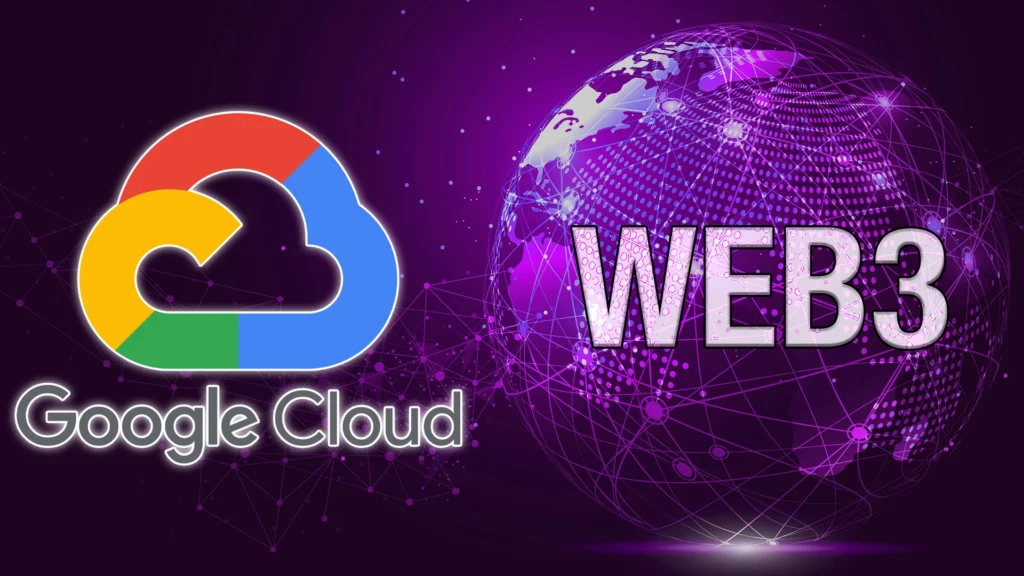-
Industry leaders appreciate Google Cloud’s Web3 interface for inclusion but criticize it for lacking Lightning and Bitcoin functionality.
-
The platform provides testnet tools, blockchain datasets, and developer training to empower Web3 developers.
-
Google uses policy changes, alliances, and integration to boost its Web3 market position.
Recently, Google Cloud debuted its much-awaited Web3 portal, which offers a variety of testnet tools, blockchain datasets, and developer-focused training resources. Although the platform’s goal is to empower developers in the emerging Web3 arena, the crypto community has responded to it in a variety of ways, offering both praise and condemnation.
The launch of Google Cloud’s Web3 Portal: A Spark for Discussion in the Crypto Industry
Reactions to the introduction of Google Cloud’s Web3 gateway were not all that uniform among notable individuals in the crypto community. Vice President of Product Marketing at Unchained, Phil Geiger, lamented the lack of native support for Lightning and Bitcoin, calling it a significant error.
Renowned cryptocurrency trader MartyParty expressed his doubts similarly, pointing out that Google seemed to be lagging behind market trends.
On the other hand, Ivaibi Festo, the creator of Mitroplus Labs, praised the Web3 portal as an all-inclusive tool, emphasizing its capacity to spur innovation in the blockchain industry.
With testnet tokens for developing and testing decentralized apps (dApps) on Ethereum testnets like Sepolia and Holesky, the Web3 site provides developers with access to a wide range of products.
The platform also offers an extensive learning program with courses on Web3 loyalty programs, NFT creation, and techniques for protecting digital assets through multi-party computation.
Beyond the recent portal launch, Google has been actively pursuing several strategic efforts to strengthen its position in the rapidly growing Web3 market.
Notably, the software giant demonstrated its dedication to enabling smooth blockchain interactions by extending its search capabilities to include wallet balances across several blockchains, including Bitcoin, Arbitrum, Avalanche, and others.
Furthermore, Google’s policy changes at the beginning of 2024 opened the door for the firm to market certain cryptocurrency-related goods on major search engines, such as Bitcoin exchange-traded funds (ETFs). This marked a substantial change in the way the company approached this kind of advertising.

Before the release of the Web3 site, Google established significant alliances and connections to expand its blockchain portfolio. With the integration of Google Cloud’s BigQuery data warehouse with MultiversX in October 2023, Web3 projects and users will be able to obtain actionable insights by utilizing AI and advanced data analytics capabilities.
Likewise, Google’s dedication to fostering blockchain innovation was reinforced when 11 blockchain networks—including Avalanche, Arbitrum, and Ethereum’s Görli testnet—were integrated with BigQuery in September 2023.
The introduction of Google Cloud’s Web3 gateway has significant ramifications for blockchain technology’s wider use and development. Google hopes to democratize participation in the Web3 ecosystem by making tools and resources more accessible to developers. This might spark a wave of creativity and experimentation.
The introduction of non-fungible tokens (NFTs) into a variety of industries, from gaming and digital collectables to art and entertainment, is one area of particular interest. The Web3 portal offers tutorials on NFT development, enabling developers to delve into the imaginative potential of tokenization and pioneer novel forms of digital expression.
Furthermore, the incorporation of educational materials into Web3 loyalty schemes highlights Google’s acknowledgement of the increasing significance of decentralized rewards and community interaction systems.
The Web3 portal’s information equips developers with the knowledge they need to design innovative loyalty programs as more businesses look to use blockchain technology to reward customers and encourage loyalty.
The extension of Google’s search functionality to wallet balances on several blockchains is positioned to optimize user access to crucial financial information, augmenting openness and accessibility in the cryptocurrency realm. This advancement makes blockchain interactions smoother and helps regular users understand the intricacies of Bitcoin ownership.
Furthermore, a wider trend towards the integration and acceptance of digital assets by the mainstream may be seen in Google’s sponsorship of certain cryptocurrency products, such as Bitcoin ETFs, through modifications to its advertising policy.
By enabling the promotion of crypto investment vehicles on major search engines, Google is poised to play a significant role in changing public perception and adoption of cryptocurrencies as legitimate investment products.
In terms of the future, Google’s persistent efforts to create alliances and integrate with other Web3 platforms point to a long-term commitment to advancing blockchain innovation.
The company has the potential to have a profound impact on the digital environment and global economy as it expands its portfolio of Web3 solutions and works with experts in the industry.
In summary, the Web3 portal from Google Cloud signifies a paradigm shift toward decentralization, empowerment, and inclusivity in the digital age, rather than only being an innovative technological undertaking.
Google is positioned to reimagine the potential of Web3 innovation and impact the future of blockchain technology by cultivating a vibrant ecosystem of developers, innovators, and creators.
ALSO, READ Bitcoin Halving and Beyond: How to Handle Market Uncertainty
A noteworthy turning point in Google Cloud’s efforts to support blockchain innovation and give developers in the Web3 ecosystem more leverage is the launch of the Web3 portal.
Despite the platform receiving mixed reviews from industry participants, Google’s strategic initiatives and extensive product line serve as evidence of its commitment to promoting progress in the cryptocurrency space. The Web3 industry is seeing Google grow its alliances and footprint, which indicates that blockchain innovation is about to pick up speed.
